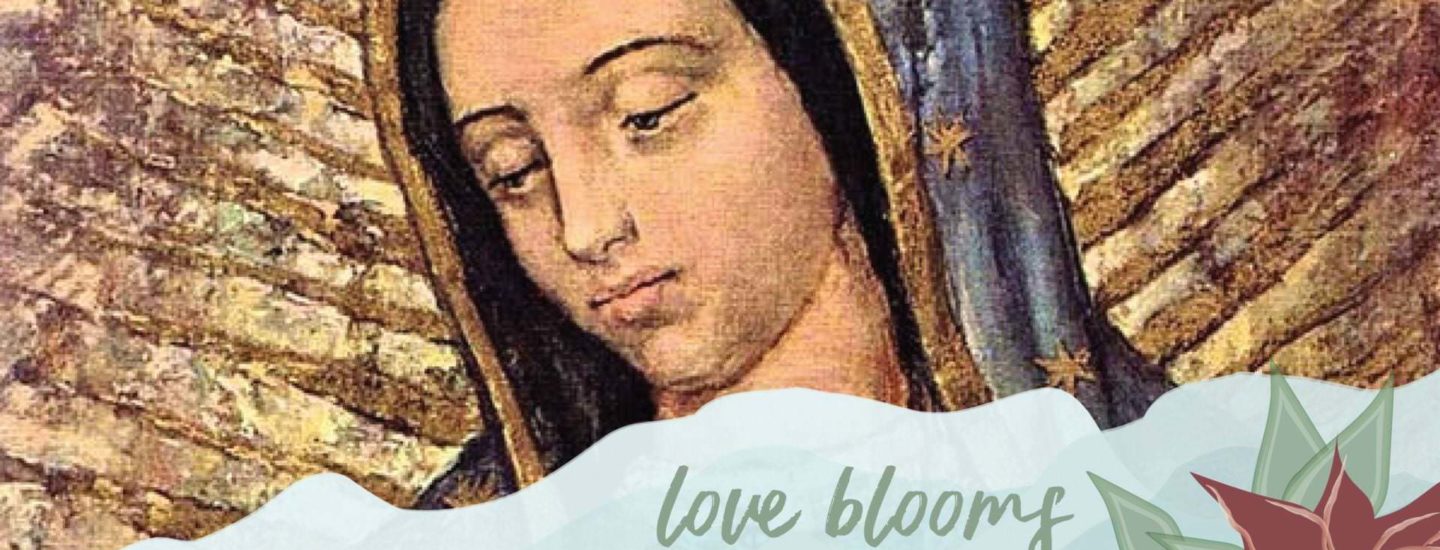Mary’s Choice

Editor’s Note: DC Service Corps member, Kevin Ruano, reflects on Mary’s ability to abandon reason and trust in the love of the Creator.
This is the irrational season
when love blooms bright and wild.
Had Mary been filled with reason
there’d have been no room for the child.
—Madeleine L’Engle, “After the Annunciation”
Contemplating L’Engle’s poem, I am taken again and again by the one line: Had Mary been filled with reason. On the surface, it strikes me as if L’Engle suggests that Mary lacked reason and, consequentially, agency. If Mary lacked reason, she could never act as an agent in her life or the life of those in her community. But when I reread, I see I am called to focus on what we as Christians celebrate and sits at the very core of L’Engle’s poem—Mary’s choice. L’Engle communicates that Mary did not let herself be swayed by reason. Even when she could not completely understand its mastery, Mary, mi morenita, chose love.
This liturgical season, Christians around the planet contemplate, anticipate, and act for another coming of Christ. If we are to do so, following Mary’s example as described by L’Engle, we must choose to make room for Christ in our bodies, on our planet, in our own home by choosing love. The love I invoke here is not the fleeting feeling but the intentional choice.
Christians know love—the very mystery of Jesus, the incarnated Christ—as that which subverted all human reason; as that which defies the very divisions which have been drawn by said rational people managing the world.
Loving, the Creator chose to join, without any reservation, all of creation. Loving, the king of kings chose to be born to a family ostracized by its community, and revealed first to the most lowly of society, shepherds and animals. Loving, the living God came to Earth in flesh to turn the world whose reason tells us too many times to accept it merely as it is on its head.
Mary, so young and fully aware, chose to participate in the mystery of God’s revolutionary love. I am convinced that the precise moment when Christ became, the exact moment when the living God assumed flesh and became life here on Earth was the moment Mary refused to accept the world as it was given to her and decided to bodily commit herself to change.
In the prime of my youth (please, feel free to call me naïve and unreasonable), L’Engle’s Mary is my Mother who profoundly understands my inner stirrings and my most intimate agitations. Mary is my guide and guardian as I labor with my body to contribute to change in the world which tolerates lies and is motivated by hateful rhetoric; as I commit my body to challenge everyday the pervasive indifference which threatens the beautifully diverse life of our very planet and of those communities most marginalized in our societies.
I have been told by reasonable people in various moments of my youth that our world, as given to me, is how it will always be. If I ever let myself accept that assertion, I hope the presence of mi morenita may move me to abandon reason and that I may be able to listen and pray with her:
May God bless me with a foolishness like yours, Mother, to believe that we can make a difference in this world, so that we can do what others claim cannot be done and I may choose love.
Amen.
Reflection Question: In what ways can you turn to Mary this Advent to draw in closer to her son?
Tagged in:

